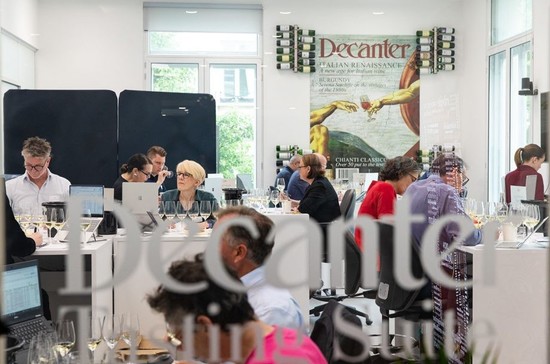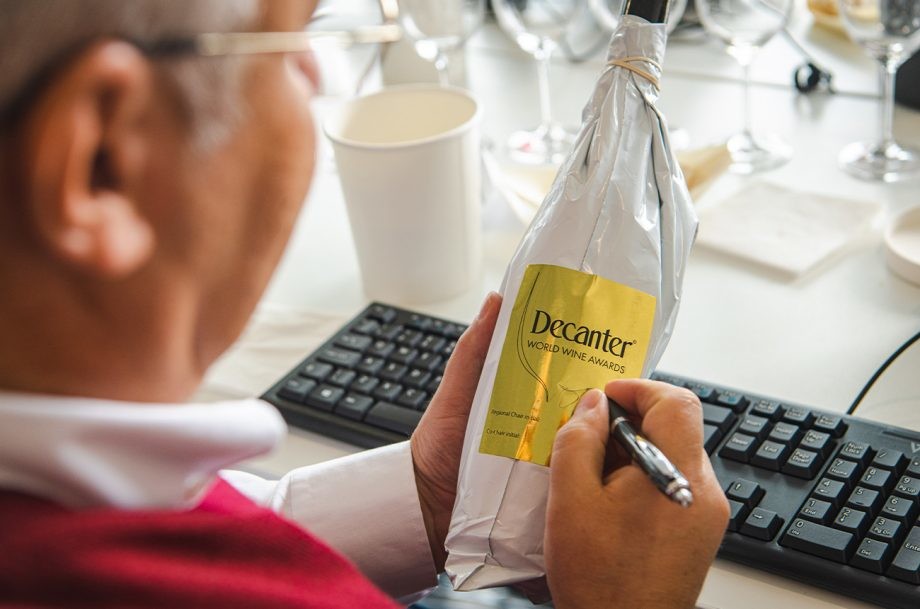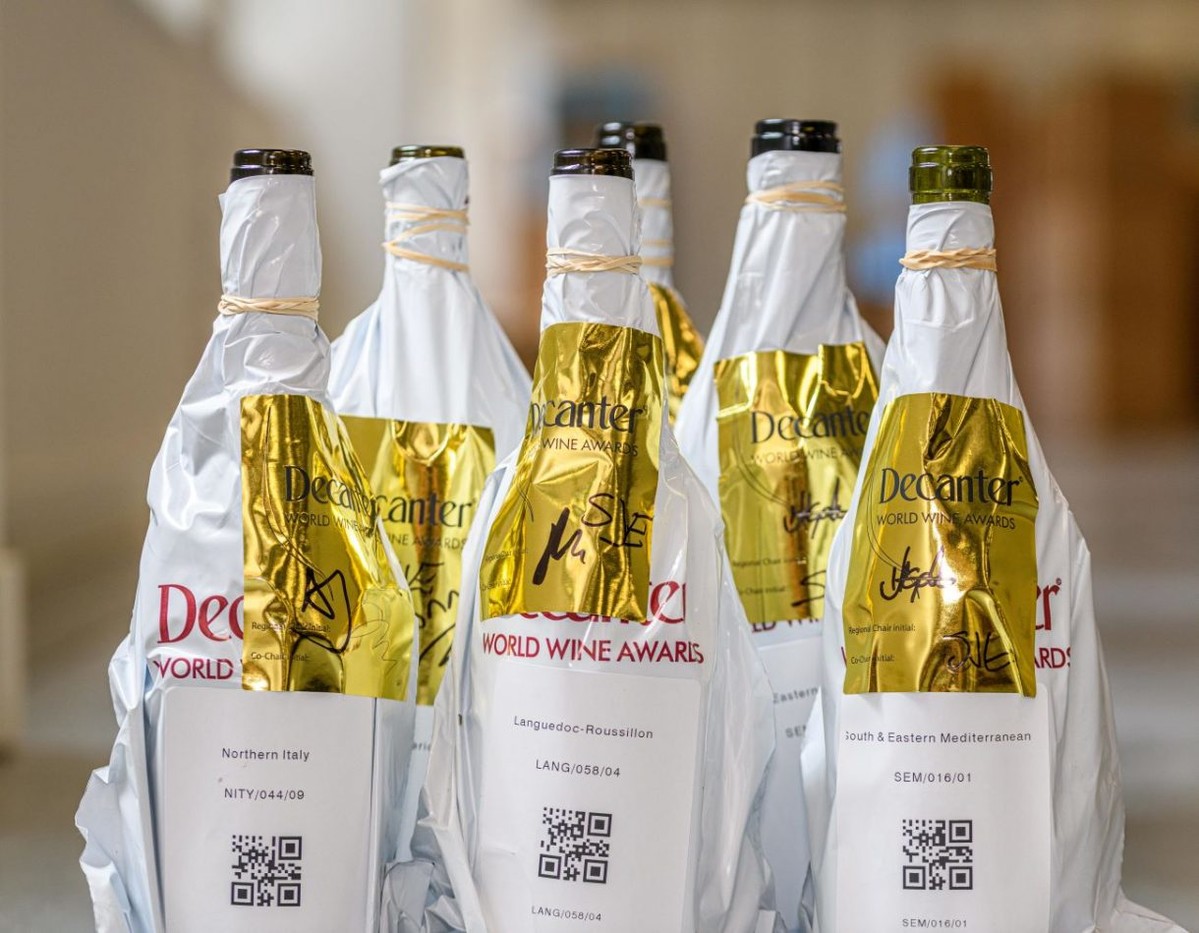The world’s largest wine competition – Decanter World Wine Awards (DWWA) announced the results of the 2024 competition today. Now in its 21st year, the 2024 DWWA saw a total of 18,143 entries from 57 countries and regions.
243 international wine experts, including 20 Master Sommeliers and 61 Masters of Wine, attended the 2024 judging week in London. The league of professional tasters assessed the entries through three rounds of blind tastings, and only the top 0.28% were awarded Best in Show, the top accolade.
Influenced by a general decrease in production volume during the years of the pandemic, DWWA 2024 saw fewer entries from China. Still, 178 Chinese wines were awarded a medal at the 2024 competition, with five Gold medals, 55 Silvers and 118 Bronze medals.
In the 2024 competition, the highest score achieved by Chinese wines, at 96 points, went to Chateau Changyu Tinlot 2016 from Yantai, Shandong. A blend of Syrah and Cabernet Sauvignon, the same vintage of the chateau’s grand vin won a Silver medal at the 2023 awards and proceeded to win a Gold medal this year with further development.
Ningxia producers secured two Gold medals this year; two years after its groundbreaking Gold medal for Chinese sparkling wines in 2022, Chandon of LVMH won another Gold with its NV Brut. Judges appreciated its ‘savoury dynamism’ and ‘a keen finish’.
Biodynamic producer Silver Heights achieved its first-ever Gold medal at DWWA with its Reserve Chardonnay 2021, praised by judges for its ‘creamy texture and a seamless drive of acidity’.
From Liaoning, Sanhe’s Cailonglin Jinding Icewine Vidal 2021 was awarded a Gold medal, following the producer’s Gold medal rush in the 2020, 2022 and 2023 awards. The 2019 and 2020 vintages of Jinding also achieved 94 points, merely one step away from Gold.
Citic Niya of Manas, Xinjiang claimed the fifth Gold medal with its Legend Marselan Blend 2021. 70% Marselan blended with Cabernet Sauvignon and Merlot at 13.5% alcohol, the wine highlights varietal fruits and ‘crisp tannins and a plush texture’.

Diversity in variety and style
Only 3.54% of wines that entered this year’s competition took home a Gold medal. Meanwhile, the Silver medal winners, achieving above 90 points, also showcase good quality and more diverse expressions.
Syrah/Shiraz was one of the highlights of red wines from Helan Mountain East this year. Shepherd Vineyard’s Shiraz 2022 received 94 points, while Chateau Copower Jade and Huangkou Winery gained 92 points with their Syrah/Shiraz-driven red wines.
The top-scoring Cabernet Sauvignon, the most-planted wine grape in China, was achieved by Ningxia producer Chateau Jinfulan’s Sheng Wei Lan Cabernet Sauvignon 2021 at 94 points. Also from Helan Mountain East, Pengsheng Zhenlu Winery and Dongfang Yuxing Winery of the remote Hongsipu subregion, in addition to Chateau Jinfulan of the Yinchuan subregion, all achieved 91 points with their versions of the grape.
Besides Xinjiang producers, Marselan is interpreted in diverse styles by a wide range of award-winning producers from Ningxia (Cofco Great Wall Ningxia, Lige Yuanshan, Renyiyuan, Pushang etc), Shandong (Chateau Anuo, Cofco Great Wall Penglai), Hebei (Amethyst Manor) and Shanxi (Grace Vineyard). The versatile expressions provide more evidence of its potential to become a ‘poster red grape’ for China.
The experimentation on less common varieties continues as producers seek a point of diversity in a sluggish market. Dongfang Yuxing created an easy-drinking, characterful red using the German Dornfelder grape, showcasing the variety’s natural acidity and aromatic charm. China Great Wall, based in Zhangjiakou, Hebei, claimed a Silver medal with the indigenous Longyan grape – more commonly known as a table grape.
In the sweet wine territory, in addition to the usual contenders from Northeast China, this year’s DWWA awarded a Silver medal to an ice wine from Zangdi Tianxiang’s high-altitude vineyard in Yunnan.
The top-performing regions
Again, Ningxia leads the medal win of this year’s DWWA with 85 awards, including two Golds and 29 Silvers. Xinjiang followed with one Gold, six Silvers and a total of 32 medals.
Out of the 17 award-winning wines from Shandong, five achieved Silver and above, including one Gold. Inner Mongolia presented a citrusy Chardonnay, winning its first Bronze medal since the 2018 awards.
Ningxia - 85
Xinjiang - 32
Shandong - 17
Hebei - 16
Liaoning - 8
Gansu - 5
Shanxi - 3
Sichuan - 3
Beijing - 3
Yunnan - 3
Jilin - 1
Inner Mongolia - 1
Multi-region - 1

The judging process
‘One of the things that really distinguishes our competition from other competitions is we have specialist judges, and then we are very discursive,’ said Andrew Jefford, Co-Chair of DWWA 2024. ‘We're very collegiate. The only score that matters is the final score that the panel awards.’
During the three rounds of blind tasting, the first round defines the Gold, Silver and Bronze medals, followed by a Platinum round that selects the regional top wines among Gold medals. The final round finds the top expressions among the Platinum winners and celebrates them with Best in Show, the top accolade.
Every wine is given sufficient time for three panel judges to discuss and come up with a universal score. Gold medals are only awarded after being retasted by Regional Chairs.
This year the awards define price bands by retail prices consumers see in shops. 20 Value Golds are awarded to those sold under £15, highlighting wines that uphold quality and affordability.
‘Winning an award at DWWA is just the first step for Chinese producers,’ said Chinese winemaker and consultant Professor LI Demei, who judged at DWWA for the first time post-pandemic. ‘Facing a difficult economy, how to tap into the market needs and communicate with the consumers based on the awards is the crucial challenge now.’
Visit awards.decanter.com for a full list of winners.
2024 DWWA: award-winning Chinese wines:
2024 DWWA: Award-winning Chinese wines - Gold and Silver I (92 points and above)
2024 DWWA: Award-winning Chinese wines - Silver II (90-91 points)
2024 DWWA: Award-winning Chinese wines - Bronze I (88-89 points)
2024 DWWA: Award-winning Chinese wines - Bronze II (87 points)
2024 DWWA: Award-winning Chinese wines - Bronze III (86 points)
All rights reserved by Future plc. No part of this publication may be reproduced, distributed or transmitted in any form or by any means without the prior written permission of Decanter.
Only Official Media Partners (see About us) of DecanterChina.com may republish part of the content from the site without prior permission under strict Terms & Conditions. Contact china@decanter.com to learn about how to become an Official Media Partner of DecanterChina.com.






Comments
Submit